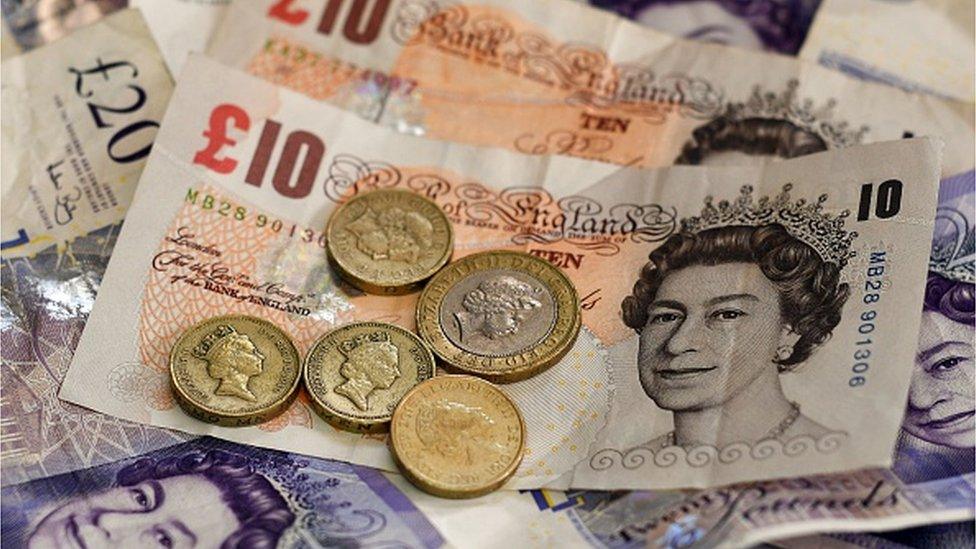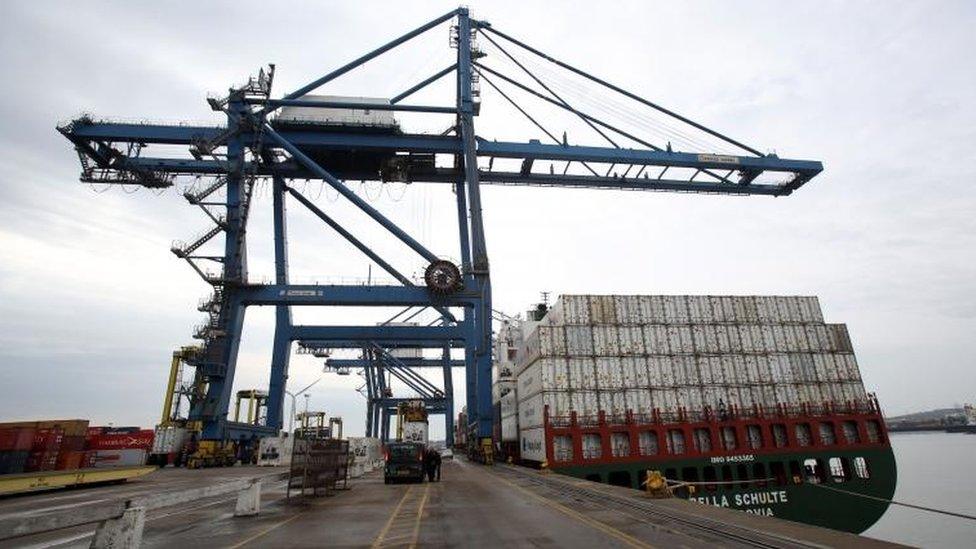The inflation monster is stirring
- Published

Ronald Reagan once said inflation was as "frightening as an armed robber".
The marauding criminal ate into savings, eroded incomes and increased the cost of everything from the weekly shop to filling up the car.
It made a widow of the prudent.
For years inflation and unemployment were the twin enemies of Western politicians and central bank governors. If either rose precipitately, a period out of office beckoned.
Inflation has been a well behaved street thug over the last few years - the financial crisis leading, after an inflation spike, to a wave of global deflation as banks reduced lending, companies retrenched, real incomes stagnated and commodity prices collapsed.
The Consumer Prices Index, the main measure of UK inflation, is flat at 0.6%. In 1975 inflation was hovering close to 25%.
Globally, deflationary pressures are still in the ascendency. China's slow devaluation of its currency means it is exporting lower prices around the world.
Commodity prices are still anaemic.
In America, inflation is almost stationary, and in the eurozone deflation is keeping policy makers awake at night, not its tricksy, aggressive cousin.
But in the UK, different pressures are starting to take hold.
And for politicians, dangers lurk.
Today's unmoved inflation figure could lead some to say there is little inflation risk.
True, inflation is still low. In 2011 it was above 5% as the effects of sterling's financial crisis depreciation fed through to higher prices.
Now, as in 2010, there are stirrings in the inflationary undergrowth.
Prices for goods produced by manufacturers rose 0.8% in the year to August, compared with a rise of 0.3% in the year to July.

Higher import costs ultimately feed through to higher prices
The overall price of materials and fuels bought by manufacturers rose 7.6% in the year to August, compared with a rise of 4.1% in the year to July.
The most recent figures on the performance of the services and construction sectors have all high-lighted higher prices for businesses.
Ultimately these higher prices have to go somewhere - and the headline inflation figure (that's higher prices for consumers) is expected to rise.
Rising pressure
To be clear, a little bit of inflation can be a good thing.
It helps clear debts, whether of consumers or the government.
Moderately higher prices also encourage business investment as companies chase higher future revenues.
The problem, though, is once roused the old armed robber can be difficult to calm down.
Sterling's fall in value since the referendum vote has increased import prices of food and fuel - and Britain imports an awful lot of both.
It has also affected the price of supplies for many businesses which import raw materials for manufacture before selling on to consumers.
Although a company as large as Primark may be able to absorb that cost as it indicated yesterday, ultimately increased import costs feed through to higher prices.
Over the next year inflationary pressures are likely to increase.
The great commodity price deflation will start to unwind as the major declines in prices start to fall out of the annual statistics.
Gas and oil prices are expected to increase - as is the cost of food, where import price inflation is running at over 3%.
The danger for politicians is a simple one.
With average incomes increasing at just over 2%, it does not take much inflation to put real income growth firmly in negative territory.
And if people, voters, start to feel poorer, politicians soon start to feel the heat.
Some economists are predicting inflation of 3% by the end of next year, above the Bank of England's target of 2%.
Unemployment figures tomorrow will reveal how the jobs market is performing.
Inflation is predicted to rise, gently maybe, but rise nevertheless.
Number 10 is watching nervously.